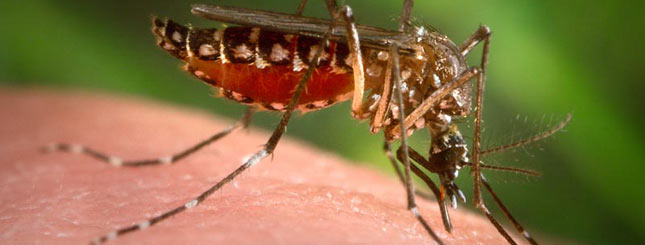Mosquitoes can act as vectors for many disease-causing viruses and parasites. Infected mosquitoes carry these organisms from person to person without exhibiting symptoms themselves.
Visible, irritating bites are due to an immune response from the binding of IgG and IgE antibodies to antigens in the mosquito’s saliva. Some of the sensitizing antigens are common to all mosquito species, whereas others are specific to certain species. There are both immediate hypersensitivity reactions (types I and III) and delayed hypersensitivity reactions (type IV) to mosquito bites. Both reactions result in itching, redness and swelling. Immediate reactions develop within a few minutes of the bite and last for a few hours. Delayed reactions take around a day to develop, and last for up to a week. Several anti-itch medications are commercially available, including those taken orally, such as Benadryl, or topically applied antihistamines and, for more severe cases, corticosteroids,










